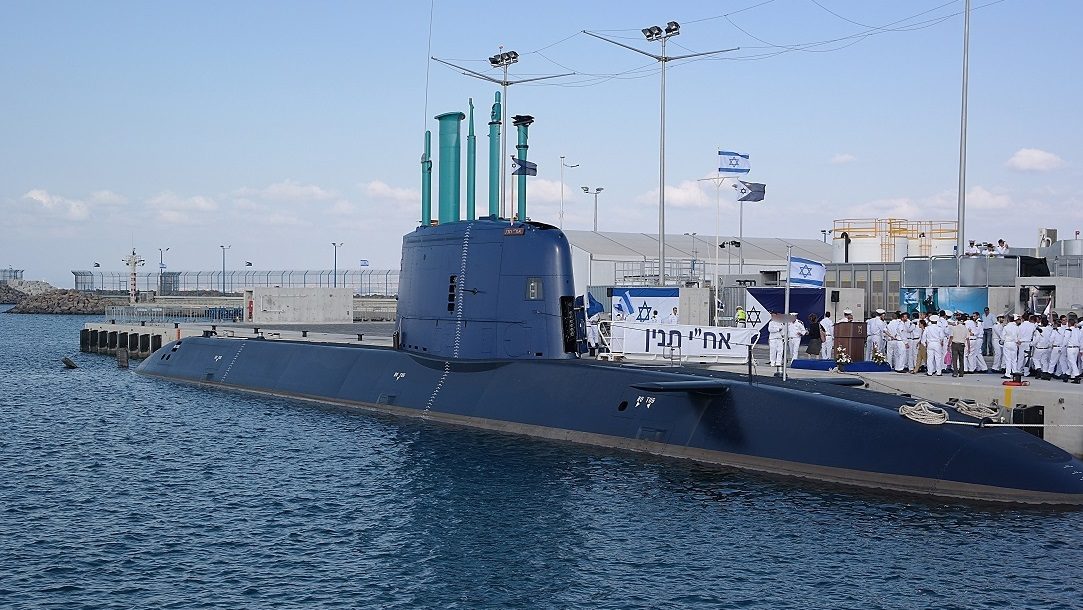Look Who’s Fighting the Last War
Scuttling the 2015 Iran nuclear deal was a mistake; the best we can do now is deal with the inevitability of a nuclear-armed Iran
It’s said that generals often fall into the trap of planning ahead to fight the last war. This time, it’s not the generals, it’s the politicians.
Few expect an agreement to emerge from the renewed Vienna talks with Iran over its nuclear program. In 2015 they achieved a comprehensive agreement, but the US scuttled it by pulling out in 2018. So why would Iran sign another one? Though the US withdrawal received high praise in some circles, I have written previously that the facts show that the agreement was working – and its cancellation is what led to Iran’s latest leap toward a nuclear weapon.
Even though the world powers and Tehran are talking again, Israel is threatening to attack Iran, and headlines scream of a crisis in Israel-US relations. Prime Minister Naftali Bennett even refused to meet with US envoy Robert Malley when he visited Jerusalem on November 15, for “fear” of lending legitimacy to talks toward a new accord.
The thing is, it’s all irrelevant.
Here is the actual situation: World nuclear powers have never succeeded in preventing another country from obtaining nuclear weapons if it wants them. Not India. Not Pakistan. Not North Korea. Not, according to foreign reports, Israel.
The clear conclusion: If Iran wants nuclear weapons, it will get them. But that doesn’t mean it will use them.
Only one power has ever used a nuclear weapon. That would be the United States, the leader of the free world, which dropped two atomic bombs on Japan to end World War II.
India and Pakistan have fought skirmishes since both obtained nuclear weapons. Pakistan is an unstable dictatorship run by its military, backing Islamic terror groups. Yet even its big bombs have remained in the armory. Why?
Because it’s clear that an exchange of nuclear attacks would leave the aggressor and the victim in ashes. Both of them.
In the 1960s, that reality was called MAD – mutually assured destruction. As a policy, MAD no longer exists, but the concept is in the back of everyone’s minds.
Including Iran’s. Israeli experts who cannot be quoted by name insist that the Iranian regime is not a bunch of crazed religious fanatics. They characterize Iran as a “rational player.” That is to say, not suicidal.
So how do we keep the inevitable Iranian nuclear weapons in the armory? While the politicians spread fear and threats, taking advantage of the tension they stoke to bolster their electoral bases, the generals have been hard at work to counter the actual threat.
It started a long time ago.
It was a hot, sunny day in July 1999. I was one of a group of reporters on board an Israel Navy missile boat, about to sail off the coast of Haifa. First, though, the navy plied us with a breakfast of spicy vegetables, onion rolls and other heavy edibles aimed at making our sea excursion more, how shall we say, impactful.
I gave the breakfast a skip. I have a record of reacting to sea voyages with attributes that include turning shades of green seen before only on imaginary Martians. The irony that I have a granddaughter in the Israeli navy is not lost on me.
So, it takes a big story to get me on a boat.
And after a few minutes at sea, there it was. Breaking dramatically through the surface of the placid sea not far from our ship was Israel’s first Dolphin-class submarine, fresh from the shipyard in Germany.
The Israeli government wouldn’t talk about the real significance, and the military censor did his best to keep me quiet, too. But I was able to find an expert to state the obvious – Dolphin-class submarines can be fitted to carry the nuclear-tipped cruise missiles that, according to foreign reports, Israel almost certainly has. The Dolphin is tiny compared to nuclear-powered submarines, but it packs enough of a wallop to make anyone think twice before launching a nuclear weapon. The retaliatory strike from the submarines, safely underwater and far outside the blast range of the bomb, would wipe out the aggressor.
It’s a second-strike capability. In other words, MAD. Call it what you want – it works. It has worked for the US and Russia, for India and Pakistan. It will work for Iran.
That’s what the generals have been planning while the politicians pump up the Iran issue into votes and fears.
More than two decades have passed since I survived that harrowing journey on calm seas, maintaining my normal skin tone and happy to be back on firm ground.
Twenty years is more than enough time to equip submarines with the kinds of missiles making up a second-strike capability. For example, there was one foreign report indicating that Israel tried out one of its submarine-capable cruise missiles, hitting a target nearly 1,500 kilometers (930 miles) away in the Indian Ocean.
It’s important to recognize reality:
- If Iran wants nuclear weapons, it will get them.
- Israel protects itself from nuclear attacks with its own promise of destructive retaliation.
- Israel cannot eliminate Iran’s nuclear program by military means.
- Continued threats by politicians to attack Iran could paint Israel into a corner on the inevitable day when Iran tests a nuclear device.
So now Israel and the world should drop the threats and consider how to deal effectively with a nuclear-armed Iran. We could consider easing sanctions and engaging Iran economically while containing its regional troublemaking.
Sanctions didn’t work. Decades of political pressure proved ineffective. The nuclear accord was scuttled. Iran will one day have the bomb.
So, for our own sake, now is the time to move forward and stop fighting the last war.



